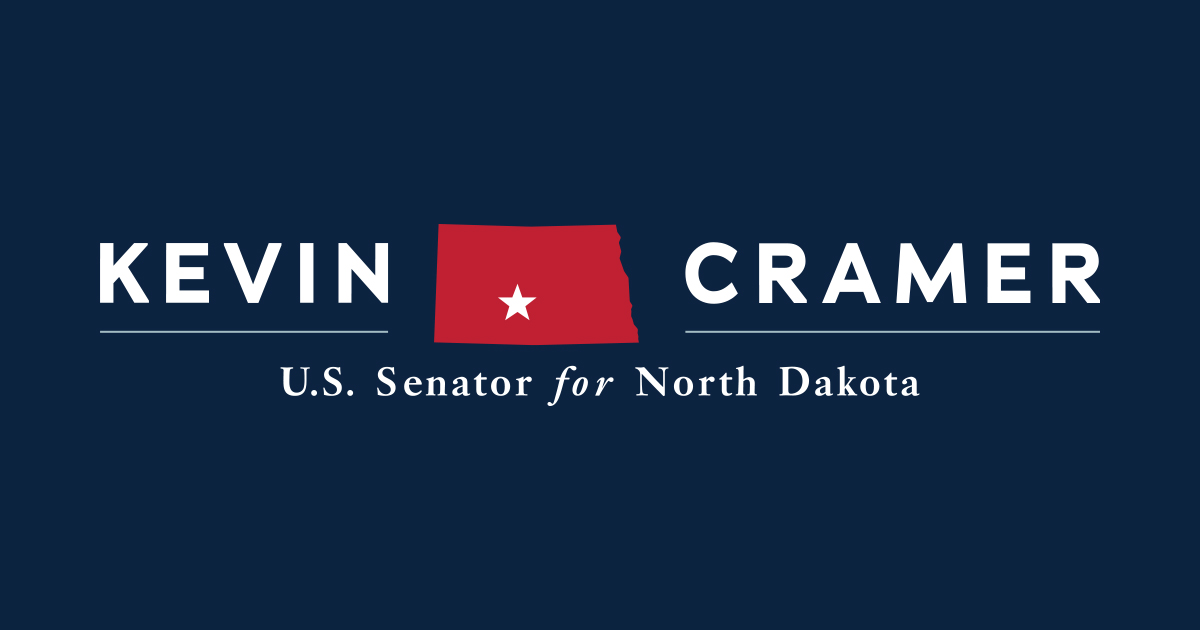Source: United States Senator Kevin Cramer (R-ND)
WASHINGTON — U.S. Senator Kevin Cramer (R-ND) joined Garrett Haake on Meet the Press Daily on MSNBC this afternoon to discuss the latest on bipartisan infrastructure negotiations, Democrats’ reckless taxing and spending bill, January 6, and COVID-19. Excepts and a full video are below.
On Bipartisan Infrastructure Negotiations:
“I am confident largely because I trust the people that are negotiating, both the Republicans and the Democrats. There’s a sincere effort. The framework from the beginning was a pretty good start. As you know, it had some wonky pay-fors, some things that Republicans objected to, some things that Democrats objected to. … People largely want an infrastructure package, so we are doing the right work. And I have confidence in them. I have confidence that we can get to 60 [votes]. I want to be one of the 60.”
On The Infrastructure Legislation He Wants Included:
“What I would like to see is the preservation of the traditional formula … where it is a 90/10 split between states getting 90 percent and grants being the other 10 percent. The 80/20 between traditional infrastructure and transit. But from everything I have seen is there’s strong emphasis on traditional infrastructure and those things that aren’t so traditional are still hard infrastructure, whether it’s transmission lines or some resiliency. So I think it is a good faith effort. I think a lot of people want to get to yes.”
On Democrats’ Reckless Spending Bill:
“The two are very separate, and they ought to be judged separately. The merits of each can be judged separately. What Democrats do with $3.5 trillion and trying to pass it through their straight partisan means is really irrelevant. If the $1.2 trillion – or if it turns out to be $800 billion or $1.1 [trillion] or whatever it turns out to be – if it meets standards I want, including some permitting reforms, I want to be for that. What Democrats do, I can’t control. But I can control this side. I think it has additional value, the process itself, has value of the American people seeing people in Congress are working together across party lines to accomplish something good for the country. I think we badly need something like that. This provides that opportunity.”
On a January 6 Commission:
“I think the [existing] committee process is exactly the way to [investigate January 6]. That’s why we’re here, that’s why we’re elected, and that’s why in a 50-50 Senate, the work of committees have jurisdiction. They did good work and came out with findings that will be helpful going forward, but wanting to expand that and review history in the context of the next election or whatever the case might be. I don’t think you need an extra commission and an extra layer of bureaucracy to do that. That can be politicized, and we’re seeing exactly that play out in the House and you would see the same with a bipartisan commission.”
On the Violence on January 6:
“I don’t rationalize it. I don’t rationalize anti-cop behavior by anybody. I think if you rationalize it on one side, you lose the moral authority on the other side. … I think everybody that walked through and walked in that night, regardless of their intent, violated law at some level, and I am glad to see some prosecutions taking place.”
On COVID-19 Vaccines:
“We are a self-governed democracy. We are not a democracy like the others. North Dakotans are very savvy people. There’s no shortage of information that they can access to make their decisions, whether it is Anthony Fauci, doctors, MSNBC or another station, or the internet. People are very well-informed. They don’t need to be lectured to; They certainly don’t need to be bullied. They respond more negatively than positively to that. Frankly, I prefer to listen to my constituents than lecture them and inform them. I inform them what’s going on in Congress. I’m not a great informer what’s going on in their personal health care. … I think there’s less risk in getting vaccinated than not getting vaccinated. I have been clear about that. But people make these decisions themselves, for themselves and for their families.”
